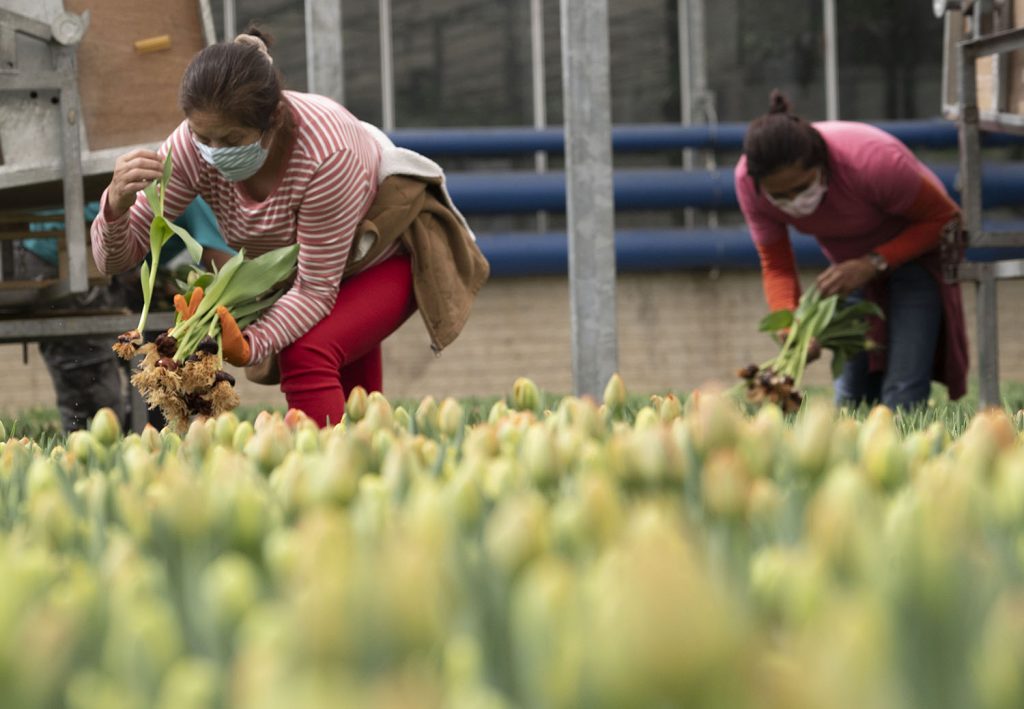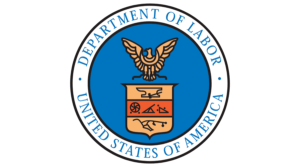
Department of Labor Award “to assess and expand the successful Fair Food Program model with a pilot project to promote human and labor rights focused on cut flower farms in Chile, Mexico and South Africa.”
US DOL: “Administered by the department’s Bureau of International Labor Affairs, the project will promote grassroots worker-driven social responsibility in agricultural supply chains.”
Declaring, “Agricultural supply chains around the world are rife with labor violations, including child labor and forced labor,” the U.S. Department of Labor (USDOL) announced yesterday that it has awarded a grant of $2.5 million to help protect farmworkers’ fundamental human rights in fields beyond the borders of the United States through the international expansion of the Presidential medal-winning Fair Food Program. From the USDOL press release:
Agricultural supply chains around the world are rife with labor violations, including child labor and forced labor. The International Labor Organization currently estimates 13 percent of all adult forced labor and 70 percent of all child labor globally occurs among agriculture workers.
The award to the Fair Food Standards Council, which oversees the Fair Food Program’s implementation, seeks to expand the program internationally. The program has helped eradicate modern slavery on participating farms and extended its protections to workers in 10 states and nine crops domestically. Several current participating buyers in the Fair Food Program have pledged their support for expanding the enforceable protections for workers in the three countries with pilot farms.
With the help of the Department of Labor’s Bureau of International Affairs (ILAB), the Fair Food Program will begin scaling internationally, starting with the incorporation of existing FFP participating flower growers’ international operations in Chile, Mexico, and South Africa. That “onboarding” process has already begun, with the initial worker-to-worker education and entry audit at FFP partner Bloomia’s operation in Valdivia, Chile, Araucania Flowers, late last year. This grant will enable all of Bloomia’s cut flower farms — in the US, Chile, and South Africa — to be monitored by the Fair Food Standards Council and certified under the Fair Food Program. From that initial platform, the FFP will explore further expansion in the three target countries to more growers and different crops through collaboration with local worker and human rights organizations, existing FFP Participating Buyers, including Whole Foods and Compass Group, and local retail food buyers that are not yet part of the Fair Food Program.
The USDOL memorialized yesterday’s announcement with a timely tweet:
Who grew your #Valentines bouquet? The flower supply chain is rife with labor violations, including child and forced labor. See how our new Fair Food project will advance #WorkerRights in flowers and other agricultural supply chains: https://t.co/FnU3sehHWe pic.twitter.com/OrPuC1Aklt
— @USDOL’s Bureau of International Labor Affairs (@ILAB_DOL) February 14, 2023
Background: On FFP farms, workers are protected from forced labor through several interlacing mechanisms designed to monitor and enforce the Program’s standards, including: worker-to-worker education on their rights under the FFP’s code of conduct; a 24/7 complaint investigation and resolution process where workers can report violations free from the fear of retaliation; regular and substantial farm audits; and legally-binding agreements with 14 of the world’s largest buyers of produce that serve to hold growers accountable for violations through swift market consequences for abuse. The Fair Food Program has helped transform Florida’s tomato industry from what federal prosecutors dubbed “ground zero for modern day slavery” before the FFP’s launch in 2011, to what one expert called “the best workplace environment in US agriculture” on the front page of the New York Times in 2014. Since its inception in 2011, the Program has expanded beyond Florida to include farms in 10 states and multiple crops.
Participating retailers in the CIW’s Fair Food Program agree to preferentially purchase from suppliers who comply with a worker-driven code of conduct, which includes a zero-tolerance policy for forced labor and sexual assault. Retailers also pay a “penny-per-pound” premium, which is passed down through the supply chain and paid out directly to workers by their employers. Since the program’s inception in 2011, buyers have paid over $42 million in premiums. Harvard Business Review called the FFP “one of the most important social-impact stories of the past century,” while the UN Special Rapporteur on Human Trafficking called it “an international benchmark in the fight against modern-day slavery.”
Now, with the help of the US Department of Labor’s generous grant, farmworkers in Chile, Mexico, and South Africa will have access to the Fair Food Program’s gold standard protections, and retail food corporations both here and abroad will have the opportunity to partner with the FFP in bringing enforceable human rights standards to their global supply chains through the pioneering Worker-driven Social Responsibility program.
Read the full Department of Labor press release by clicking here or simply reading below!
US DEPARTMENT OF LABOR AWARDS $2.5M GRANT TO PROMOTE HUMAN, LABOR RIGHTS IN THE INTERNATIONAL CUT FLOWER SUPPLY CHAINS
WASHINGTON – The U.S. Department of Labor today announced an award of $2.5 million to support an initiative to assess and expand the successful Fair Food Program model with a pilot project to promote human and labor rights focused on cut flower farms in Chile, Mexico and South Africa.
Agricultural supply chains around the world are rife with labor violations, including child labor and forced labor. The International Labor Organization currently estimates 13 percent of all adult forced labor and 70 percent of all child labor globally occurs among agriculture workers.
The award to the Fair Food Standards Council, which oversees the Fair Food Program’s implementation, seeks to expand the program internationally. The program has helped eradicate modern slavery on participating farms and extended its protections to workers in 10 states and nine crops domestically. Several current participating buyers in the Fair Food Program have pledged their support for expanding the enforceable protections for workers in the three countries with pilot farms.
Administered by the department’s Bureau of International Labor Affairs, the project will promote grassroots worker-driven social responsibility in agricultural supply chains. An initial feasibility study will assess an international expansion of the Fair Food model for promotion of worker voice and worker rights. The project will evaluate the results through a comparative assessment of which factors promote or hinder the expansion of the model in agriculture in the three countries.
The project aligns with the department’s commitment to improve labor conditions in global supply chains.
Learn more about the department’s international work.
Agency Bureau of International Labor Affairs
Date February 14, 2023
Release Number 23-307-NAT
Media Contact: Christine Feroli
Phone Number 202-693-4664
Email feroli.christine.e@dol.gov
Funding is provided by the United States Department of Labor under cooperative agreement number IL-39461-22-75-K. 100% percent of the total costs of the project or program is financed with USG federal funds, for a total of 2.5 million dollars.

